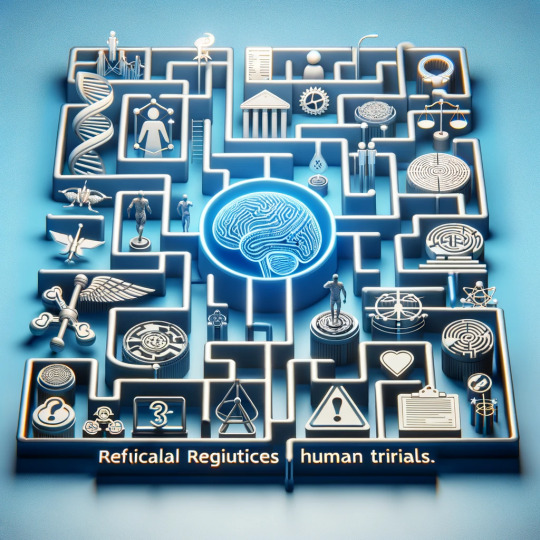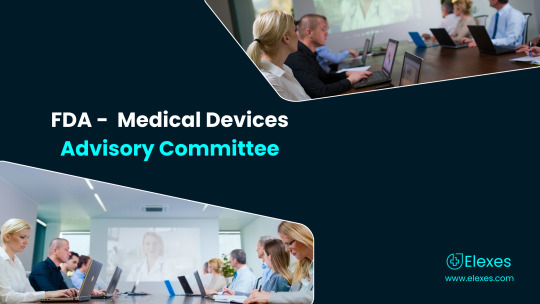#medical regulatory
Text
Orphaned neurological implants

The startup world’s dirty not-so-secret is that most startups fail. Startups are risky ventures and their investors know it, so they cast a wide net, placing lots of bets on lots of startups and folding the ones that don’t show promise, which sucks for the company employees, but also for the users who depend on the company’s products.
You know what this is like: you sink a bunch of time into familiarizing yourself with a new product, you spend money on accessories for it, you lock your data into it, you integrate it into your life, and then, one morning — poof! All gone.
Now, there are ways that startups could mitigate this risk for their customers: they could publish their source code under a free/open license so that it could be maintained by third parties, they could refuse to patent their technology, or dedicate their patents to an open patent pool, etc.
All of this might tempt more people to try their product or service, because the customers for digital products are increasingly savvy, having learned hard lessons when the tools they previously depended were orphaned by startups whose investors pulled the plug.
But very few startups do this, because their investors won’t let them. That brings me to the other dirty not-so-secret of the startup world: when a startup fails, investors try to make back some of their losses by selling the company’s assets to any buyer, no matter how sleazy.
A startup’s physical assets are typically minimal: used ergonomic chairs and laptops don’t exactly hold their value, and there’s not much of a market for t-shirts and stickers advertising dead businesses.
Wily investors are more interested in intangible assets: user data and patents, which are sold off to the highest bidder. That bidder is almost certainly a bottom-feeding scumbag, because the best way to maximize the value of user data is to abuse it, and the best way to maximize a failed business patent is to use it for patent trolling.
If you let your investors talk you into patenting your cool idea, there’s a minuscule chance that the patent will be the core of a profitable business — and a much larger chance that it end up in a troll’s portfolio. Real businesses make things that people want. Patent trolls are parasites, “businesses” whose only products are legal threats and lawsuits, which they use to bleed out real businesses.
The looming threat of dissolution gives rise to a third startup dirty secret: faced with a choice of growth or sustainability, companies choose growth. There’s no point in investing in sustainability — good information security, robust systems, good HR — if it costs you the runway you need to achieve liftoff.
Your excellent processes won’t help you when your investors shut you down, so a “lean” startup has only the minimum viable resiliency and robustness. If you do manage to attain liftoff — or get sold to a Big Tech firm — then you can fix all that stuff.
And if the far more likely outcome — failure — comes to pass, then all the liabilities you’ve created with your indifferent security and resiliency will be someone else’s problem. Limited liability, baby!
Combine these three dirty secrets and it’s hard to understand why anyone would use a startup’s product, knowing that it will collect as much data as it can, secure it only indifferently, and sell that data on to sleazy data-brokers. Meanwhile, the product you buy and rely upon will probably become a radioactive wasteland of closed source and patent trolling, with so much technology and policy debt that no one can afford to take responsibility for it.
Think of Cloudpets, a viral toy sensation whose manufacturer, Spiral Toys, had a successful IPO — and then immediately started hemorrhaging money and shedding employees. Cloudpets were plush toys that you connected to your home wifi; they had built-in mics that kids could activate to record a voice-memo, which was transmitted to their parents’ phones by means of an app, and parents could send messages back via the toys’ speakers.
But Spiral Toys never bothered to secure those voice memos or the system for making new ones. The entire database of all recordings by kids and parents sat on an unencrypted, publicly accessible server for years. It was so indifferently monitored that no one noticed that hackers had downloaded the database multiple times, leaving behind threats to dump it unless they were paid ransoms.
By the time this came to light, Spiral Toys’ share price was down more than 99% and no one was answering any of its email addresses or phones. The data — 2.2 million intimate, personal communications between small children and their parents — just hung out there, free for the taking:
https://www.troyhunt.com/data-from-connected-cloudpets-teddy-bears-leaked-and-ransomed-exposing-kids-voice-messages/
Data leakage is irreversible. Those 2,200,000 voice memos are now immortal, child-ghosts that will haunt the internet forever — after the parents are dead, after the kids are dead.
Data breaches are permanent. Filling a startup’s sandcastle with your important data is a high-risk bet that the company will attain liftoff before it breaches.
It’s not just your data that goes away when a startup folds — it’s also the money you invest in its hardware and systems, as well as the cost of replacing devices that get bricked when a company goes bust. That’s bad enough when it’s a home security device:
https://gizmodo.com/spectrum-kills-home-security-business-refuses-refunds-1840931761
But what about when the device is inside your body?
Earlier this year, many people with Argus optical implants — which allow blind people to see — lost their vision when the manufacturer, Second Sight, went bust:
https://spectrum.ieee.org/bionic-eye-obsolete
Nano Precision Medical, the company’s new owners, aren’t interested in maintaining the implants, so that’s the end of the road for everyone with one of Argus’s “bionic” eyes. The $150,000 per eye that those people paid is gone, and they have failing hardware permanently wired into their nervous systems.
Having a bricked eye implant doesn’t just rob you of your sight — many Argus users experience crippling vertigo and other side effects of nonfunctional implants. The company has promised to “do our best to provide virtual support” to people whose Argus implants fail — but no more parts and no more patches.
Second Sight wasn’t the first neural implant vendor to abandon its customers, nor was it the last. Last week, Liam Drew told the stories of other neural abandonware in “Abandoned: the human cost of neurotechnology failure” in Nature:
https://www.nature.com/immersive/d41586-022-03810-5/index.html
Among that abandonware: ATI’s neural implant for reducing cluster headaches, Nuvectra’s spinal-cord stimulator for chronic pain, Freehand’s paralysis bypass for hands and arms, and others. People with these implants are left in a precarious limbo, reliant on reverse-engineering and a dwindling supply of parts for maintenance.
Drew asked his expert subjects what is to be done about this. The least plausible answer is to let the market work its magic: “long-term support on the commercial side would be a competitive advantage.” In other words, wait for companies to realize that promising a durable product will attract customers, so that the other companies go out of business.
A better answer: standardization. “If components were common across devices, one manufacturer might be able to step in and offer spares when another goes under.” 86% of surgeons who implant neurostimulators back this approach.
But the best answer comes from Hunter Peckham, co-developer of Freehand and a Case Western biomedical engineer: open hardware. “Peckham plans to make the design specifications and supporting documentation of new implantable technologies developed by his team freely available. ‘Then people can just cut and paste.’”
This isn’t just the best answer, it’s the only one. There’s no ethical case for permanently attaching computers to people’s nervous systems without giving them the absolute, irrevocable right to nominate who maintains those computers and how.
This is the case that Christian Dameff, Jeff Tully and I made at our Defcon panel this year: “Why Patients Should Hack Medtech.” Patients know things about their care and their needs that no one else can ever fully appreciate; they are the best people to have the final say over med-tech decisions:
https://www.youtube.com/watch?v=_i1BF5YGS0w
This is the principle that animates Colorado’s HB22–1031, the “Consumer Right To Repair Powered Wheelchairs Act,” landmark Right to Repair legislation that was signed into law last year:
https://www.eff.org/deeplinks/2022/06/when-drm-comes-your-wheelchair
Opponents of this proposal will say that it will discourage investment in “innovation” in neurological implants. They may well be right: the kinds of private investors who hedge their bets on high-risk ventures by minimizing security and resilience and exploiting patents and user-data might well be scared off of investment by a requirement to make the technology open.
It may be that showboating billionaire dilettantes will be unwilling to continue to pour money into neural implant companies if they are required to put the lives of the people who use their products ahead of their own profits.
It may be that the only humane, sustainable way to develop neural implants is to publicly fund that research and development, with the condition that the work products be standard, open, and replicable.
Image:
Cryteria (modified)
https://commons.wikimedia.org/wiki/File:HAL9000.svg
CC BY 3.0
https://creativecommons.org/licenses/by/3.0/deed.en
[Image ID: The staring eye of HAL9000 from 2001: A Space Odyssey. Centered in it is a medieval anatomical engraving of the human nervous system, limned in a blue halo.]
#pluralistic#neurology#medtech#unauthorized bread#body horror#regulatory capture#bodily autonomy#floss#medical implants
105 notes
·
View notes
Text
Most stimulants exert their activating effects by enhancing catecholamine neurotransmission. Catecholamine neurotransmitters are employed in regulatory pathways implicated in attention, arousal, motivation, task salience and reward anticipation.
seems to follow that if you have trouble with any of those things (and who amongst us doesn't lmao), stims might provide you with therapeutic benefits rather than just being fun to take
#truly is all about dosage at the end of the day.#a therapeutic dose is different from a recreational dose#i should have just started with that bc that is something else that people don't ever mention#getting drugs on the street means variable dosing (esp if you don't have a scale etc). getting medication means very clear dosing#which means greater control in effects. this was hilariously clear once i got access to legal weed with its regulatory standards
4 notes
·
View notes
Text
crazy how criticizing regulatory shortcuts and tricks is considered being 'antivax' by the same circles that criticize big pharma for being willing to risk public health for their profits
#when you actually work in biopharma you know#using wordplay and lobbying govs to go into 'emergency' mode to rush or eliminate the need for human trials#isn't what we call properly clinical and regulatory compliant medical development.#i mean it will be on paper thanks to words like 'emergency' and 'not significantly different enough'#but these words are just a license to rush it
2 notes
·
View notes
Text
Expert Medical Device Regulatory Consulting Services for Compliance Success | Trinity M Consulting

Trinity M Consulting provides expert medical device regulatory consulting services to ensure compliance success. Our team of experienced professionals will guide you through the complex regulatory landscape, helping you navigate requirements and achieve market clearance efficiently. Trust Trinity M Consulting for reliable and comprehensive regulatory support tailored to your specific needs.
#medical device regulatory consulting services#medical device consultants#medical device consulting services#medical device regulatory consulting
2 notes
·
View notes
Text
i don't know how to explain to my doctor that the fact that it is so goddamn hard and annoying to get my prescriptions refilled is part of the issue for managing my adhd. it's never easy! it can never be easy!
#istg i had no issues til i moved to MN but i also know its bc of recent regulatory stuff that it's been getting tougher#and also the pharmacy strikes/general worker treatment for pharmacy employees and pharmaceutical companies pulling so much bullshit#bc they can#but also it's making it sooooooooo hard to force myself to deal with the process. i have to. i need to. but i dread it so much.#and that's just the one medication my T has been a hell of a lot harder to deal with recently#so one medication is on order and we'll see if they can even fill it#and next week i have to get the other filled and we'll see if they have it (they won't) and if they can order it (might not b able to)#and we'll have to see if i'm going to spend the entire 2 weeks prior to a trip trying to scramble to every pharmacy n ask if they can fill#lmfao i have a JOB i have a LIFE#who the hell wants to be spending every morning of every day trying to figure out how to get this shit come ONNNNN#personal stuff#sorry im cranky
1 note
·
View note
Text
How Regulatory Consulting Smooths Your Medical Device Journey
The medical device industry is a world of innovation, constantly pushing boundaries to improve patient care. But with this progress comes a complex web of regulations. Ensuring your medical device meets these requirements is crucial for market approval and successful launch. This is where regulatory consulting comes in, acting as your guide through the labyrinth of regulations.

What is Regulatory Consulting?
Regulatory consulting firms specialize in helping medical device companies navigate the ever-changing regulatory landscape. They possess a deep understanding of national and international regulations, including those from agencies like the FDA (Food and Drug Administration) in the US and the IMDR (EU Regulation on Medical Devices) in Europe.
Benefits of Partnering with a Regulatory Consulting Company
Reduced Risk of Delays: Regulatory consultants can identify potential roadblocks early on, preventing delays and keeping your project on track.
Streamlined Submissions: They ensure your regulatory submissions are complete, accurate, and meet all agency requirements, minimizing the chance of rejection.
Expert Guidance: They provide in-depth knowledge and experience to help you navigate complex regulations and make strategic decisions.
Increased Efficiency: Consultants can help optimize your regulatory processes, saving you time and resources.
Global Expertise: For international market aspirations, they offer guidance on navigating the diverse regulatory requirements of different countries.
How Can a Regulatory Consultant Help with Medical Devices?
Regulatory Strategy Development: Creating a comprehensive plan to navigate the regulatory approval process.
Clinical Trial Design and Support: Ensuring your clinical trials meet regulatory requirements and provide robust data for approval.
Regulatory Documentation Preparation: Assisting in the creation and submission of all necessary regulatory documents.
Quality Management System (QMS) Development and Implementation: Guiding you in establishing and maintaining a compliant QMS.
Regulatory Post-Market Support: Helping you manage post-market surveillance and reporting requirements.
Finding the Right Regulatory Consulting Company
Choosing the right regulatory consulting company is crucial. Here are some key factors to consider:
Experience: Look for a company with a proven track record in the medical device industry.
Expertise: Ensure they have deep knowledge of the specific regulations applicable to your device.
Global Reach: Consider your target markets and choose a company with expertise in those regions if needed.
Communication Style: A good fit is a company that communicates clearly, understands your needs, and keeps you informed throughout the process.
Conclusion
Regulatory consulting can be an invaluable asset for any medical device company. By partnering with an experienced and qualified firm, you can navigate the regulatory maze with confidence, maximizing your chances of success and bringing your innovative device to market faster.
0 notes
Text
Regulatory Intelligence Solution for Streamlined Compliance
Experience seamless compliance management with our Regulatory Intelligence Solution. Tailored to streamline your regulatory processes.
#medical devices#regulatorychallenges#regulatorycompliance#healthcareinnovation#medicaldevicequality#industrystandards#continuousimprovement#regulatory challenges
0 notes
Text
Regulatory Intelligence Services
Top-tier regulatory intelligence solutions for pharma companies. Continue compliant effortlessly. Explore Vistaar for a competitive edge!
https://www.vistaar.ai/services-regulatory-intelligence/
#regulatoryscrutiny#regulatorychallenges#regulatorycompliance#regulatory frameworks#regulatoryaffairs#medical devices
0 notes
Text
NJ is making medical marijuana registration free — for the shrinking group that wants it
New Jersey is making it free to sign up for its medical marijuana program, following a drop in enrollment.
The Garden State is eliminating signup fees for people who register online for a new digital patient card. Anyone who still wants a physical medical marijuana card will have to pay just $10 every two years, down from the previous $50 fee, according to an announcement this week from the…

View On WordPress
#Legal Marijuana#marijuana license#medical marijuana#New Jersey Cannabis Regulatory Commission#New Jersey Marijuana#recreational marijuana
0 notes
Text
Clinical Trials : Holistic Exploration of the Current State and Future Outlook
The global clinical trials market size is expected to reach USD 123.5 billion by 2030, expanding at a CAGR of 6.49 from 2024 to 2030, according to a new report by Grand View Research, Inc. An increase in the volume and complexity of clinical trials has been witnessed lately, which plays an important role in the R&D of new drugs and products. The market witnessed a decline of 6% in 2020 owing to the COVID-19 pandemic. However, the market is projected to recover from 2021 onwards. In addition, clinical trials have become increasingly costly, adding to the overall cost of developing a drug.

Clinical Trials Market Report Highlights
The phase III clinical trials segment dominated the market with a 53.3% share in 2023. This can be attributed to the complexity of this phase
The interventional studies segment dominated the market in 2023. It is one of the most prominent methods used in clinical trials in the study design segment owing to the increasing demand for the intervention for clinical trials by researchers
North America held 50.3% of the market share in 2023. Favorable government initiatives and the presence of a large number of players in the U.S. that offer advanced services are responsible for market growth
Asia Pacific region is anticipated to grow at the fastest CAGR over the forecast period owing to the increasing patient pool and cost-efficient services.
For More Details or Sample Copy please visit link @: Clinical Trials Market Report
The increasing need for developing new drugs for chronic diseases, such as cancer, respiratory disorders, diabetes, cardiovascular diseases, and others, is creating immense pressure on the healthcare industry. The COVID-19 pandemic and the increasing demand for developing a suitable treatment are driving the market. The high number of people affected by the disease further depicts an increasing need for therapeutics & vaccines. Currently, there are 288 therapeutics and 106 vaccines under development, out of which, nearly 7.0% of therapeutics are in Phase IV, 21.0% in Phase III, and 43.0% & 13.0% in Phase II & Phase I, respectively.
The pandemic has resulted in the global disruption of traditional onsite clinical trials. Hence, regulatory bodies worldwide have undertaken various initiatives for fast-tracking clinical trials for the development of innovative solutions. One such instance is Solidarity, an international clinical trial launched by the WHO to find effective treatment against COVID-19. Although the pandemic has forced many medical device & drug developers to revise the approach to such crises, integrating best practices within clinical trial procedures & adapting to virtual trials, which can support the continuous development of therapeutics.
ClinicalTrials #HealthcareResearch #MedicalInnovation #DrugDevelopment #PatientRecruitment #Biopharmaceuticals #ClinicalResearch #RegulatoryCompliance #DataManagement #PatientEngagement #PrecisionMedicine #TherapeuticTrials #CROs #ClinicalResearchOrganizations #GlobalHealth #ClinicalStudyDesign #PharmaceuticalIndustry #BiotechResearch #ClinicalEndpoints #HealthTechIntegration
#Clinical Trials#Healthcare Research#Medical Innovation#Drug Development#Patient Recruitment#Biopharmaceuticals#Clinical Research#Regulatory Compliance#Data Management#Patient Engagement#Precision Medicine#Therapeutic Trials#CROs#Clinical Research Organizations#Global Health#Clinical Study Design#Pharmaceutical Industry#Biotech Research#Clinical End-points#HealthTech Integration
0 notes
Text
Neuralink's Human Trials: Regulatory Hurdles of Neurotechnology
Neuralink's Human Trials: Regulatory Hurdles of Neurotechnology
@neosciencehub
#neosciencehub #science #neuralink #humantrails #neurotechnology #elonmusk #FDA #healthcare #medicalscience #ClinicalResearch #health #AITech #BrainComputer #DataPrivacy #NSH
The journey of Neuralink, Elon Musk’s ambitious neurotechnology venture, to its first human trials represents a significant achievement in the field of biomedical innovation. However, this path was not without its challenges. Neo Science Hub’s Scientific Advisory Team examines the intricate regulatory landscape that companies like Neuralink must navigate, highlighting the complex interplay of…

View On WordPress
#Biomedical Ethics#Brain-Computer Interface#Clinical Trials#Data Security#Elon Musk#Ethical Technology#FDA Approval#featured#Health Law#Medical Innovation#Neuralink#Neuroscientific Research#Neurotechnology Regulation#Patient Safety#Regulatory Compliance#sciencenews#Technological Advancements
0 notes
Text

Wait... Wait wait wait, let me understand something.
So for this cisgender woman with naturally high testosterone (and/or an intersex condition, I do not know her specific condition and it's honestly none of my business) has to be be forced to take the same testosterone suppressing medications that these same competitive regulatory committee said wasn't good enough to suppress trans women's testosterone to allow them to compete in women's sports.
If she has naturally high testosterone, similar to that that trans women experience in their lives pre-transition then wouldn't she have the same advantages that a trans woman supposedly inherently has and can not be corrected with said testosterone suppression?
Like, no one should have to undergo forced medical treatment to be able to compete or to make it "fair" for their competition. Other athletes have all kinds of natural advantages, like Michael Phelps having an abnormal wingspan and larger lungs and heart. In fact, every high level athlete has some kind of physical advantage, that's how they're such high level athletes. You think the people they beat out for their spots just, what, didn't work as hard? Didn't grab those bootstraps tight enough? Fuck no.
Racism, intersexism, and transphobia are all linked, and this case is maybe the most glaringly obvious one.
42K notes
·
View notes
Text

these bylines side by side...
#regulatory officials: hello overworked underpaid medical ppl plz educate ppl!!!#studies: ppl dont like data bein shoved in their face it makes it worse
0 notes
Text
FDA - Medical Devices Advisory Committee

The U.S. Food and Drug Administration (FDA) has 31 advisory committees responsible for the evaluation and regulation of drugs, medical devices, and biologics.
The advisory committee protects and promotes public health while meeting the requirements established in the Federal Advisory Committee Act.
Committees are either mandated by statute or established at the discretion of the Department of Health and Human Services.
The advisory committee has multiple roles in developing and evaluating New Drugs, Biologics, and Medical Devices.
Their primary goal lies in assisting the FDA to evaluate applications for Pre-Market Approvals (PMAs) of medical devices, New Drug Applications (NDAs), and Product Licensing Agreements (PLAs) for biologics. The committees include chairperson, members, a consumer, industry and sometimes a patient representative.
Medical Devices Advisory Committee
Medical Devices Advisory Committee supports the FDA to protect and promote public health. The committee consists of 18 panels with a maximum of 159 standing members.
The selection of members is carried out by the Commissioner or designee from among authorities in Clinical and Administrative Medicine, Engineering, Biological, and Physical Sciences, etc.
The panel advises the FDA on the safety and efficacy of the medical devices except for the Medical Device Dispute Resolution Panel.
According to the respective specialty area, the panel advises the commissioner of Food and Drugs regarding recommended classification or reclassification of devices into one of three regulatory categories.
For recommendations of medical devices with respect to regulatory aspects, the committee reviews and evaluates the issues related to clinical study designs on the safety and effectiveness of marketed and investigational medical devices.
Overall, the 17 panels except for the Dispute Resolution Panel (DRP) of the medical device advisory committee, advise the Commissioner in accomplishing the constraints in assuring the safety and effectiveness of the medical devices in accordance with their specialty ****area and authorization.
The advisory committee also plays a major supportive role to agency professionals and influence agency decisions. FDA calls meetings with the committee or with the advisory panel as necessary. Generally, each of the panels meet once a year or as per the requirements by the FDA and important regulatory decisions or discussions are carried out in these meetings.
It is important that Manufacturers have a regulatory and quality team that stays abreast of decisions concerning their products and any such decisions or discussions are preemptively taken into account for a speedy FDA clearance, approval or compliance activities.
0 notes
Text
1 note
·
View note
Text
Regulatory Compliance with Requirements Database & Summary Reports
Simplify pharmaceutical regulatory compliance with databases, summary reports, and tracking tools. Explore now and streamline your processes.
https://www.vistaar.ai/summarize-regulatory-compliance-requirements-database-reports/
#regulatoryscrutiny#regulatorycompliance#regulatorychallenges#regulatory frameworks#regulatoryaffairs#medical devices#healthcare
0 notes